#susan cooking
Note
christmas prompt #6, anne/gilbert!
“I’m sorry, Anne, truly,” Gilbert said, his arm warm around her waist, the words dropping as softly as the snow that had begun to fall.
“I’m not,” Anne replied. She didn’t dare glance up at him. He was tall and sturdily built and it was taking a great deal of determination to serve as his crutch, which she could hardly let him see. He’d be sure to insist she go to fetch someone to help him back, as if she’d leave him sitting beside the frozen pond with only his great-coat and scarlet muffler to keep him from becoming a block of ice. She could also feel her nose turning an unbecoming red in the cold and was vain enough not to want Gilbert to notice.
“You ought to be,” he said, wincing as he made an entirely unsuccessful attempt to bear some of his own weight. Like every doctor she’d ever heard of, he made a poor patient, a fact she intended to share with him just as soon as they were settled safely back at Ingleside, Susan whipping up a delicious pot of her famous vegetable soup, “known to keep body and soul together, Mrs. Doctor, a tonic far tastier than anything the Doctor ever prescribed.”
“Let’s not have any oughts or shoulds,” Anne said. “It was a wonderful idea, an afternoon of skating, just you and I, the way we never did back in Avonlea. I had a lovely time, you thought of everything, the flask of hot tea and those lemon biscuits—”
“And then I nearly crushed you, falling like the greatest oaf, as if I’d never worn a pair of skates before,” Gilbert interrupted. “If you weren’t so quick and graceful, I’d have hurt you badly.”
“That’s quite enough,” Anne said, letting her voice hold the faintest hint of Marilla’s regular asperity. “You didn’t come close to toppling me and the only consequence is your poor sprained ankle. If you’re quite sure it isn’t broken, you’re limping terribly.”
“I’m sure I can diagnose a broken ankle, whether I’m the patient or yet another one of the infinite McPherson clan,” Gilbert said. “It’s just a sprain—”
“A bad one,” Anne said. “I saw how you looked when you tried to stand up, don’t try to convince me otherwise. You shan’t and it will be a waste of your strength.”
“You’re not wrong,” Gilbert said, which she knew was as far as he would go in allowing he was in pain. She made a quick mental inventory of the pillows in the sitting room and decided which ones she’d use to prop up his foot. The squashy green velvet one she sewed just before Walter was born, the one he said made her look like a most industrious nymph, would at the top of the pile. “Why aren’t you sorry, though, Anne-girl? If you’re not sorry the skating ended early, it sounds rather heartless and that’s the last word I’d use to describe you.”
“I’m not sorry because I loved skating with you, Gil,” she said. “It felt like heaven, flying about the ice, and though I’d never want you to be injured, now you’ll have to rest for a few days. You can’t drive the carriage with your bad ankle. I’ll have you all to myself at Ingleside, Dr. Blythe unable to attend clinic or conduct any house-calls. I can’t think of the last time you had to stay at home and let yourself be tended to. You’ll have to let me be the one who takes care of you.”
“It sounds like work,” Gilbert said. “Me, a useless lump stuck on the sofa, Jem and Walter running you ragged—"
“I shan’t tell Susan you said that,” Anne replied. “She’ll reproach you so long and thoroughly you’ll wish you’d sprained both ankles or knocked yourself insensible. The boys will be delighted that Papa is home and happy to read them stories and Susan will be overjoyed to make us all twice as many of her little snacks as usual and when Jem and Walter are napping and Susan is in the kitchen, I’ll have you all to myself—”
“And what will you do with me?” Gilbert asked, his voice low, a little husky, startling to hear outside of their moonlit bedroom.
“That’s quite a good question,” Anne said. She risked a look at his face, the gleam in his hazel eyes obscuring any distress from his ankle or the growing cold. “You’ll be at my mercy, won’t you?”
“I will indeed,” he said. “I’m curious to see what form it will take.”
Nine months later, the form was apparent: twins, Di her mother’s image and Nan just as fair, with his own dark curls and eyes. He’d laughingly suggested they name Diana Mercy, but Anne, tired but indomitable, had only shaken her head and cuddled the swaddled babies a little closer.
#anne of green gables#anne/gilbert#shirbert#ice skating#romance#prompt fill#ingleside era#susan cooking#fluff#anne shirley#gilbert blythe#married life
44 notes
·
View notes
Text
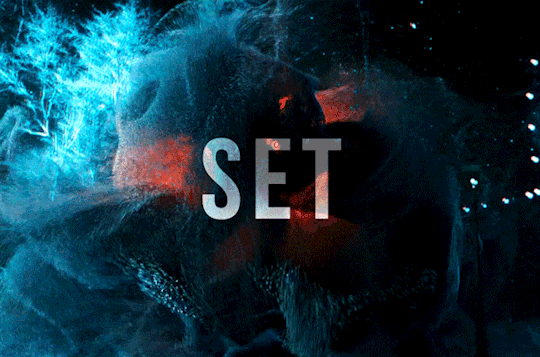
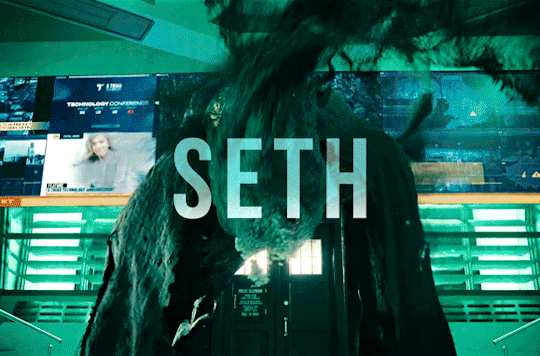
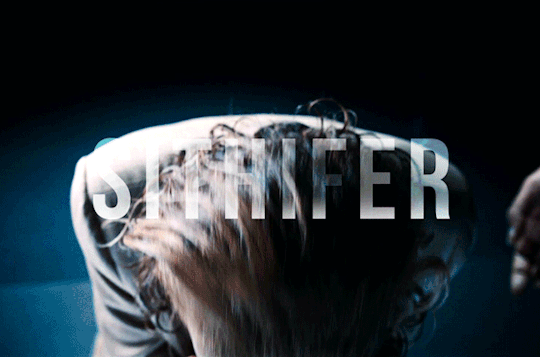

I am Sutekh, the God of Death | Doctor Who, The Legend Of Ruby Sunday
#I THOUGHT YALL WERE AIMING TOO HIGH BUT YALL WERE RIGHT!!! ITS HIM VOICED BY GABRIEL WOOLF AND ALL#dw spoilers#sutekh#doctor who#season 14#series 14#the legend of ruby sunday#s14 e7#susan triad#rtd2r#rtd2 era#spoilers#doctor who gif#dw gif#gif set#gif making#gifs#gif i was cooking :3
1K notes
·
View notes
Text









Wych elm, Susan Smith//House of the Dragon (2022-)
#house of the dragon#hotd#got#asoiaf#a song of ice and fire#game of thrones#alicent hightower#aegon ii targaryen#web weaving#mine#wych elm#susan smith#olivia cooke#tom glynn carney#emily carey#disfunctional family#angst#grief#mother son relationship
280 notes
·
View notes
Text
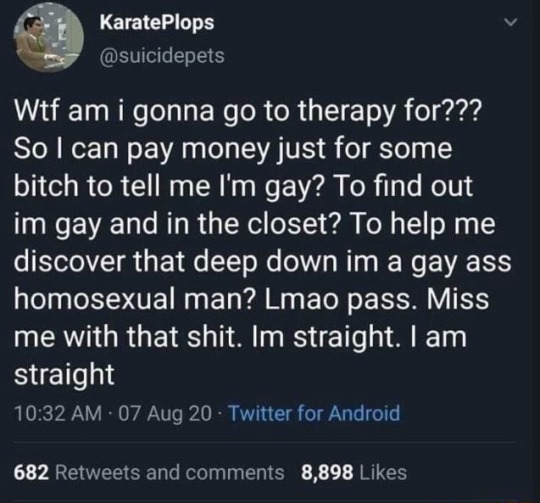
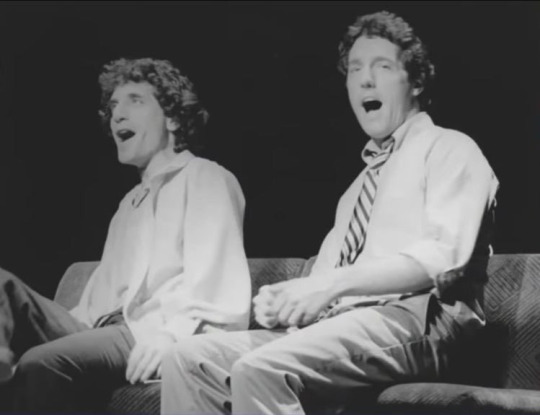
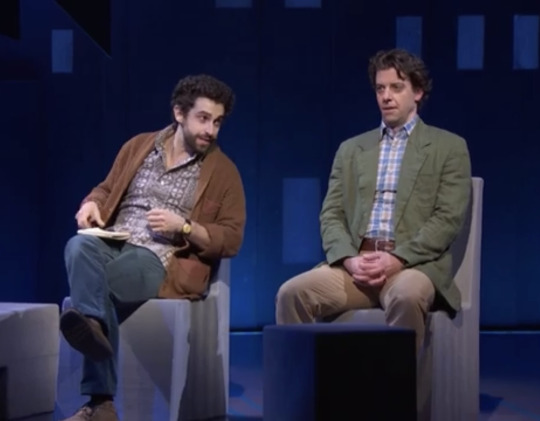
#you guys still like these right?#Photo cred fro MOTF: Susan Cooke#falsettos#marvin falsettos#marvin trilogy#falsettos obc#march of the falsettos#mendel weisenbachfeld#falsettos 2016
653 notes
·
View notes
Text

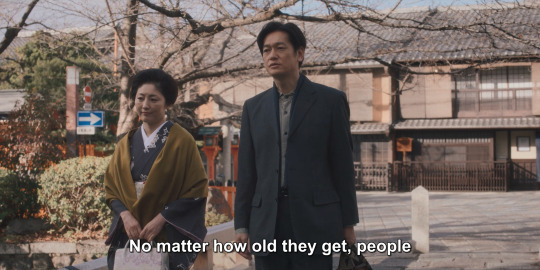



who am i?
mary oliver house of light: “maybe” (via @weltenwellen) \\ the makanai: cooking for the maiko house (via @idleminds) \\ andrew wyeth spring (1978) \\ susan sontag as consciousness is harnessed to flesh: journals and notebooks, 1964-1980: “february 17th, 1970” (via @theoptia)
support me
#on self#on identity#mary oliver#house of light#maybe#the makanai cooking for the maiko house#the makanai: cooking for the maino house#susan sontag#mine#my webweaving#webweaving#web weaving#webweave#webs#web#ww#parallel#parallels#parallelism#compilation#compilations#intertext#intertextuality#comparative#comparatives#web weave#andrew wyeth#spring#as consciousness is harnessed to flesh
3K notes
·
View notes
Text
can we talk about the brilliant execution of Dot and Bubble's big reveal!!!
i am still absolutely gobsmacked by what a well-written episode Dot and Bubble is. startling, disarming, confrontational, and tremendously impactful. and holy shit i really really want to talk about how excellent the 'twist' (which really should've been obvious in retrospect 😭 was done):
as a white person it took me about ten minutes to clock that Lindy's friend group were a nightmare Aryan Tupperware Party collective: all white, all blue-eyed, and even Gothic Paul was dressed in blues and whites, with no black at all. but you know how i responded to that? mentally i went 'oh i'm sure it's nothing!' and shoved it aside. and i think it is exactly that insidious tendency to ignore, normalise, and validate overt and covert racism that the episode does such a tremendous job of tackling!
everything in the episode gives us the lore we need to understand Lindy and the people of Finetime are white supremacists. Lindy's disgusted face and immediate blocking of The Doctor versus the amount of time she spends with Ruby. Lindy's shock at the Doctor and Ruby occupying the same room implying segregation on the Homeworld. Lindy calling the Doctor and Ruby 'criminals' not for being in the Bubble, but for breaking segregation. Lindy using Ricky September, a white influencer, to calm herself down not just from the monsters, but from interacting with a Black person. the tradwife aesthetic of the Finetime residents making a comeback in real-life right-wing racist circles. ugh, there's so much and it was all right in our faces!!
yet many of us who aren't POC had the privilege of going through the episode baffled and uncomfortable, without being able to put a finger on why until the final bit of the episode. doesn't that tell us how quickly and easily we've all taken to ignoring both micro and macroaggressions? that we needed talk of being 'contaminated', improper use of the word 'voodoo', and Lindy straight up telling the Doctor that face-to-face contact was unacceptable, to understand they're white supremacists? oh my God 😭😭
what a genius play, to make Lindy so detestable from the start. she's an arrogant, vain, self-absorbed, moronic, uncompromising, traitorous bitch...and by layering that abhorrent personality and then giving us the reveal of her white supremacy, there is no argument even the most wishy-washy of people could have re: their awful views. Lindy and her friends are revolting racists who are so wrapped up in their own echo-chamber 'bubble' that they would genuinely rather be devoured alive than challenge their own narrow, bigoted views.
i'm still blown away by the power of Ncuti's final scene. the disbelief, the frustration, the sadness and the fury...and yet the Doctor still tries to save them against all odds. i think the most common response to this episode was 'The Doctor should have gone all Time Lord Victorious on them', and you're right - he should have! but doing that would've affirmed the beliefs of the real-life racists viewers. the Doctor responding not with violence or righteous vengeance is a very deliberate writing choice: we are supposed to come away feeling revolted that he needed to behave that way, to almost be supplicant to the white supremacists. because that is the real-life view of so many people who don't even view themselves as racist: Black people need to 'perform' to a higher standard, than white people just to be considered worthy of respect.
the more i watch it, the more i'm convinced this is the best episode of the whole season, and one of the best Doctor Who episodes we've ever had. we were taken off-guard by having an episode overtly about racism set in the future rather than the past, because our tendency is to assume equality is a natural consequence of becoming technologically advanced. this clearly isn't the case, and Dot and Bubble is a masterclass in confronting racism head-on rather than dancing around it for the comfort of white viewers.
just. aaargh!!!! absolutely amazing 🔥🔥🔥
#talk about a much-needed slap in the face AND addressing the elephant in the room#this was an episode that did the Fifteenth Doctor so much justice and he deserves it all and more#i hope that in future episodes we also don't shy away from the Doctor's Blackness as a core aspect of his identity#and are able to discuss it with as much nuance and thought as this episode gave us 💖💖💖#bro you know it's good when the whole episode just eviscerated my desire to talk about Susan Twist's appearance because it's so juicy omfg#doctor who spoilers#doctor who#dot and bubble#15th doctor#fifteenth doctor#the doctor#ruby sunday#lindy pepper-bean#ricky september#ncuti gatwa#millie gibson#callie cooke#tom rhys haries#starleskatalks#long post
115 notes
·
View notes
Text

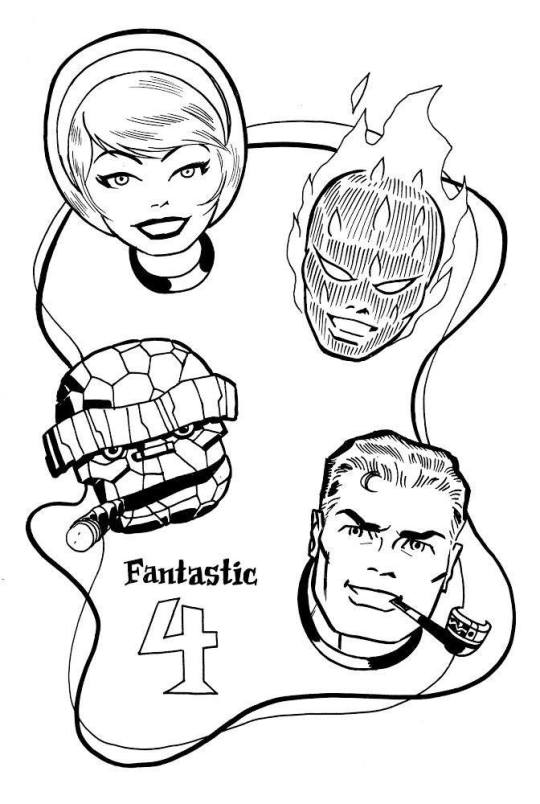
The Fantastic Four by Darwyn Cooke (1962-2016).
#darwyn cooke#fantastic four#60's#60s#reed richards#susan storm#ben grimm#johnny storm#mr fantastic#the thing#human torch#invisible woman#invisible girl#marvel#first family#smoking#retro#vintage#1960s
379 notes
·
View notes
Text




I just wanted to share these photos I found in The Marvin Songs
#in trousers#march of the falsettos#falsettoland#falsettos#the marvin trilogy#marvin trilogy#william finn#catherine cox#tony cummings#kathy garrick#sherry hursey#michael rupert#james kushner#alison fraser#chip zien#heather macrae#janet metz#danny gerard#stephen bogardus#martha swope#susan cook#gerry goodstein#marvin falsettos#miss goldberg#sweetheart in trousers#trina falsettos#jason falsettos#mendel falsettos#mendel weisenbachfeld#charlotte falsettos
114 notes
·
View notes
Text
Okay I might just be reading too much into this. But while I was watching the episode *cough cough* procrastinating *cough cough I realised that they don't show how the Doctor and Ruby got there.
And I know that it's probably just meant to be vaguely like 'they just went for fun'.
BUT this is the third episode in a row where we haven't seen them arrive. And for 73 yards it was clearly a doctor who episode when it started but it immediately gets rid of the doctor. ( I know that for 73 yards and for dot and bubble it was because Ncuti Gatwa was filming other stuff but let me cook) In Dot and Bubble you could effectively be forgiven for assuming that it was a random Black Mirror episode or something similar until the Doctor turns up, and tbh if you were just flicking through channels and haven't been watching Doctor Who you could probably basically not know for much longer. In Rogue they are just there, except for the title screen (the same for dot and bubble) you could basically watch it as a Bridgerton episode until the Chuldur turn up.
(And there's whole other rant about how the Chuldur fits into the theory about this basically being a TV show within a TV show, I don't know the name for this theory)
But anyway these episodes are increasingly separated from the Doctor and Ruby as plot points particularly in the beginning of episodes. They are more and more like an excuse to tell the story or explore the topic that the writers want to explore. Which isn't totally different from the occasional episode of previous series, but this is a lot more in my memory at least from previous series. So it feels a lot like they are skimming over the more sci-fi doctor who elements. Which fits in in my mind to the idea that the 'One who waits' is a representation of story telling. I've seen theories that it's Ruby but she doesn't know it which makes sense, I think it would also make sense for it to be her parent(s) who left her, or alternatively just it's own thing all together. But it feels very like that bit where Amy is living a life and starts to realise it's all fake.
The narrowing down of these episodes into not showing them arriving, and at least in Rogue - I can't remember in the others - not showing them leaving the story, feels very different.
It feels more and more like story telling. They have covered fairy tales, Period pieces/Romance, Dystopia, War/SciFi, Musicals, Political Drama. They are also showing the doctor playing his role, something that we see companions doing often enough but we seldom see the doctor doing it.
In Space Babies he is scared of a new creature. In the Devil's Code he sings a song that makes little sense in the story, he doesn't question the road making noise. In Boom he's more himself but it's also the closes to his 'normal' environment. In 73 Yards they just fully remove him from the story, which I realise was done for filming requirements but would have been so interesting to see the doctor in a Political drama. In Dot and Bubble he plays the role of the outsider bringing information to those living under a Dystopia, how is he UNABLE to access the inside, sure he plays a role that's fairly similar to himself but Doctor Who is really Dystopian.
In Rogue he is becoming more and more his role, he is playing the role of a sort of Elizabeth Bennet style character, a strong romantic interest for the brooding man. Which is great, he makes fun of the genre, but he is hyper aware of the genre and still ends up in its pitfalls. He trusts a man so quickly he ends up handing over his sonic, he gets proposed to and basically immediately accepts. Now I am really hoping that Rogue gets to stay around I really liked him as a character, regardless of which theory of his identity if any are true. But the Doctors reaction to him is still a little out of character, he is feeling what he is SUPPOSED to feel and he is acting how he is SUPPOSED to act.
It just feels to me like an increasing number of these episodes are more and more story like and more and more separated from the more Doctor Who elements. And the lack of an introduction of how they get there, and the lack of them leaving in the TARDIS is so unusual to me and stands out to my brain so much.
It feels like they are removing elements that don't fit the genre.
Anyway not sure if that makes any sense but I'm vibing with it.
#15th Doctor#Rogue#Doctor Who#I am meant to be studying - Like i have a paper and exam due tomorrow#this is not a good use of my time but I also need to yap#I have been cooking way too hard on the stuff that just doesn't need to be done#Anyway please tell me which bits are making me sound like an idiot coz I don't think I've had a coherent thought since exams started#I did not realise how long this post was getting#Doctor Who Rogue#Rogue is hot too#I might be going insane but#Theres heaps of yap in this I'm so sorry I let it get away from me#Doctor Who theory#dw meta#73 yards#doctor who series 14#susan twist#space babies#And this doesn't even get me started on Susan Twist who was like#a. partially hiredfor her amazing last name#and b. the song being 'there's always a twist at the end' and then her name always being in the credits#oooo so good
72 notes
·
View notes
Text
The Camp Girls: A Pedestal of Morality
Warning: This post contains the exploration of period-typical attitudes that can border on sexism, as well as spoilers for RDR2.
RDR2 is a game, that for the most part, values its historical setting in the sense that the setting actually matters to the story and the characters. The characters are not only reacting to the historical attitudes, but they are a part of it as well. Of course, Red Dead 2 is a bit more tame in some aspects of 1899 America, especially compared to RDR1, which makes SURE to remind you of the prejudices of 1911 America.
For this post, however, I want to talk about more domestic attitudes that were a part of the gang- to be more specific, I want to talk about the Cult of Domesticity or the Cult of Womanhood and how that idea relates back to Dutch's gang.
The Cult of Domesticity or the Cult of Womanhood was an idea that was popularized in the 19th century by the Victorian middle class that spread to America and explained, encouraged, and pushed specific gender roles and cultural ideas to the masses. As the name probably explained, this idea was pushed onto mainly women. There were two main aspects of it- the private sphere and the harbinger of morality.
The Private Sphere had everything to do with a woman's role in the house- hence the private sphere. The Private Sphere had everything to do with housekeeping, childrearing, being a good host, and overall creating a safe haven for the men in their lives. While the men had to deal with the public sphere, which was business, work, protection, etc., women took charge of the private sphere.
The morality aspect of it is about how women were expected to bring morals to the house. Men were expected to hold women in high regard and women provided sectors of emotional safety and humanity to men, as well as providing children with a moral code and instill them with manners.
This excerpt from usahistory.org explains it better than I can: "A TRUE MAN was concerned about success and moving up the social ladder. He was aggressive, competitive, and rational, and channeled all of his time and energy into his work. A TRUE WOMAN, on the other hand, was virtuous. Her four chief characteristics were piety, purity, submissiveness, and domesticity. She was the great civilizer who created order in the home in return for her husband's protection, financial security, and social status."
Of course, men perpetuated this idea, but a lot of women also supported this model of living, believing it to be the way it should be. Writers like Sarah Hale published magazines that explained what should be the behaviors of a proper lady. Women's magazines like Godey's Lady's Book sold 150,000 copies in a year. Catherine Beecher was an advocate for bringing the women's sphere to the classroom in order to instill a proper moral code into their students.
But why does this matter? I mean, the camp girls aren't exactly the moral standard of womanhood in the 1800s. Mary Beth is a thief. Karen is a scam artist. Tilly ran with gangs and murdered a man. Abigail was an ex-prostitute and a thief. Grimshaw was probably all of those things combined at one point or another.
Well, you could argue that because they live unconventional lives, morality was a bit greyer, but overall, the women of the camp still, in one way or another, adhered to this idea regarding the cult of domesticity.
The private sphere and the public sphere definitely existed in the gang, which is why there were so few missions with the camp girls. The girls were mostly resigned to the "house" or to the camp. They worked to make the camp a livable place for the men who gave them protection and financial security.
It is a common sight seeing Tilly washing clothes, or Mary Beth and Karen sewing something, or Abigail wiping down tables, same as Grimshaw. There are all very domestic roles- while in camp, the women are almost always working, except for Molly and Sadie, while the men are almost always lounging around- typical of the 1800s home.
The girls mention this as well through interactions.
Tilly mentions how much she hates washing and mending the men's laundry and how she wishes the men could do their own laundry.
Karen tells Grimshaw to shut up because Grimshaw isn't the one feeding her, so she won't take her bullying.
Abigail screams how the men aren't being men because they couldn't protect Jack from being kidnapped. She also critiques Dutch's philosophy because it doesn't feed them.
Mary Beth is yelled at for not working in the camp as she should by Grimshaw.
There are more examples of this, but we will be here all day if I have to go through all of them.
Grimshaw is kinda obvious. The girls have to work to please this fierce dragon, who is always working. Arthur mentions in the entering Valentine mission whether or not Miss Grimshaw could spare them, showing how the general priority of the girls in the camp is domestic work.
We also know that the girls doing men's work is generally rare due to this one interaction with Karen- "Not so long ago, I was a damsel in distress. Now they got me protecting the men."
The now implies that this isn't a normal routine and that protecting the men is not something that she usually has to do.
So that was just the domestic aspect of it, but there is also the morality part of it.
I think the biggest representation of this is the mini-therapy sessions with the girls, telling you to be better and offering advice to what might make Arthur a better man, with Arthur being more comfortable opening up to them BECAUSE they are women and because he expects their morality to keep them from using such information to hurt him, which is something he has to be careful with when it comes to the men in the camp. But there are more representations of this.
There is Abigail begging John to put his old ways behind and to be a better man, a real man. There is Hosea speaking about Bessie, talking about how while she is in heaven, he will be looking up at her from hell, implying that Bessie had the moral compass that Hosea did not (the interaction also probably destroys the fandom's interpretation of Bessie and Annabelle being very active members in the gang, when that is most likely not the case). Even Mary, though not a camp girl, still acts like a moral harbinger to Arthur, telling him to be a better man and stop being an outlaw.
John has a line in Undead Nightmare that is a complete reference to this thought process: "Abigail, teach the boy right from wrong."
So what am I getting at here? What is the point of all of this? It seems like I am just going off on old historical attitudes, but what does this ultimately mean?
What it means is that Dutch allows women into the gang in order to dignify his ambitions.
Dutch likes to differentiate himself from the other gangs that still roamed in America. While the other gangs stole and robbed for fortune, Dutch robbed for his romantic ideals and to be a western Robinhood. While the other gangs had many men, Dutch had a few strong men whom he knew personally and trusted. While the other gangs targeted innocents, Dutch's gang targeted only those whom they saw as committing the sin of avarice.
Dutch wants to see himself as morally superior to other gangs and other criminals, so what better way to do it than allowing women into the gang? Women who suffered great misfortune in their life and had no other place to go. With women being a pedestal of morality back in that time, Dutch having women in his camp as a way to differentiate himself from other gangs- a way to show people that he is better than them.
Every other gang encountered in the game has no women.
"We are what we are. A bunch of desperados on the run. But with the women, a change of clothes, we're a choir, or a gang of pilgrims, or something."
See, that one line from Guarma from Dutch basically explains the whole concept. Without the women, they are desperate criminals, clinging onto nothing, but with the women, they become virtuous by association. But someone like Micah doesn't care about this virtue or morality because he explains that he would rather just be a criminal and run with a few strong men, which is what he does in the end.
The concept of the private sphere and the public sphere of the camp can also show that Dutch wants to dignify his gang by giving it a sense of civilization to make it truly like a home or family.
What an interesting idea, don't you think?
#rdr2#red dead redemption 2#arthur morgan#john marston#dutch van der linde#tilly jackson#karen jones#mary beth gaskill#susan grimshaw#historical#character analysis#story analysis#guys i think i cooked with this one
65 notes
·
View notes
Text
#cauliflower#vegtables#now this is a dish#something I would serve at a dinner party and wait for compliments#Susan will ask for the recipe#I’ll never give it to her#TikTok#brattylikestoeat#TikTok food#food#foodlr#food blog#video#foodie#cooking stim#stim cooking#savory stim#yummy
61 notes
·
View notes
Photo

Three of Swords. Art by Olivia Susan Cook.
53 notes
·
View notes
Text
I’ve realized there’s a very real possibility that we might see Rosemary’s death in gruesome detail and I’m not gonna be ready for that
#the Walten files#the Walten files spoilers#seeing what bon did to Susan after it was just implied in part 3 was INTENSE#like don’t get me wrong Martin and the team COOKED this episode#and I am both excited and so SO terrified about the upcoming parts
60 notes
·
View notes
Text










I am at last myself. With no ambition greater than to walk where I please and to breathe the open air. To die unmarked and unnoticed and be free.
Susan Sontag, from “The Dummy”, featured in I, Etcetera: Stories//“Lilies,” House of Light, Mary Oliver//Postcard from gone, Leila Chatti//Ophelie, Arthur Rimbaud//Advantages of Being Evergreen, Oliver Baez Bendorf//Olivia Cooke as Alicent Hightower in House of the Dragon (2022-))
#alicent hightower#olivia cooke#house of the dragon#web weaving#mine#hotd#got#asoiaf#game of thrones#a song of ice and fire#hotd season 2#nature#freedom#quotes#words#mercy#peace#nature as freedom#ophelia#river#ocean#lilies#trees#green#susan sontag#mary oliver#arthur rimbaud#water#leila chatti#oliver baez bendorf
182 notes
·
View notes
Text
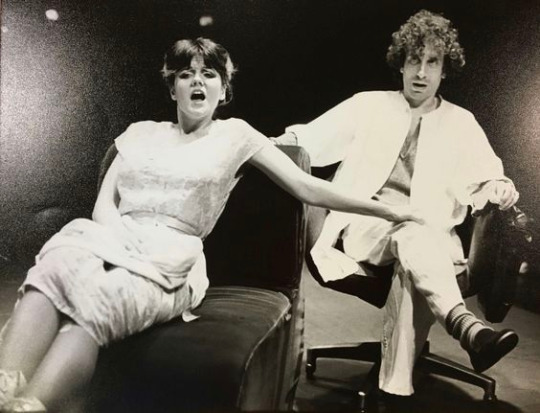
Alison Frasier & Chip Zien, March of the Falsettos 1982
#TRINDEL TUESDAY#2 for 1 this week folks#Photo cred: Susan Cook#march of the falsettos#trina falsettos#mendel weisenbachfeld#alison fraser#chip zien
71 notes
·
View notes
Text
2001 VS 2023







"The power of true friendship never ends." ˚₊· ͟͟͞͞➳❥




like / reblog if you use / save !¡
#witch#w.i.t.c.h.#w.i.t.c.h comic#w.i.t.c.h fanart#will vandom#irma lair#taranee cook#cornelia hale#hay lin#susan vandom#elyon escanor#kandrakar#fanart#comic art#comics#graphic novel#then and now#glow up#downgrade#cover#comparison#luchipuchi's gallery
36 notes
·
View notes